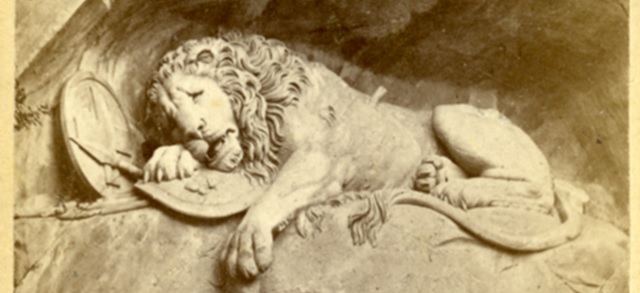
Monuments Class Projects
Architect/Sculptor of Monument
Odoardo Tabacchi, Antonio Tantardini
Preview

Medium
photograph, carte-de-viste
Keywords
Italian Unification, Kingdom of Sardinia, Neoclassical, Victor Emmanuel II, Camillo Benso, Count of Cavour, Industrialization
Physical Dimensions
3.75 x 2.25 ''
Date of Publication
1865
Date of Publication
c. 1865-1890
Name of Monument
Monumento a Camillo Benso conte di Cavour
Date of Creation of Monument
5-18-1865
Date of Completion or Dedication of Monument
1865
City of Monument
Milan
Location within City
Piazza Cavour
State/Province of Monument
Lombardy
Country of Monument
Italy
Description
The Cavour Statue stands tall in the busy center of Milan, just east of the Porcelanosa Milano. It commemorates a key figure in Italian history, Camillo Benso Conte di Cavour (1810-1861). As prime minister, he succeeded in unifying a divided Italy under Victor Emmanuel II.
School of Art/Architecture
Neoclassical
Digital Date
2-7-2025
Copyright
Physical Copy of the carte-de-viste is in the public domain. Digital copy scanned by Rod Library, University of Northern Iowa.
Creative Commons License

This work is licensed under a Creative Commons Attribution-NonCommercial 4.0 International License
File Format
image/jpeg



Comments
After the Roman Empire’s disintegration, Italy consisted of many small independent states. This changed when Cavour, along with many other noble people, worked to unify the peninsula in the mid 19th century.
Camillo Benso Conte Cavour was born in Turin, in the Kingdom of Sardinia. With his family's aristocratic standing in society, he was able to travel around the European continent and was educated in cities such as Vienna and Paris. He became very politically active, with him promoting liberal policies, including a constitutional monarchy and agricultural reforms.
Cavour became the prime minister for the Kingdom of Sardinia in 1852. Italian unification was a goal of Cavour’s foreign policy was the unification of Italy under the monarch he served, Victor Emmanuel II (1820-1878). Cavour understood that his nation would not be able to do this massive task alone. So he made alliances with neighboring countries. He was notably able to form an alliance with Napoleon III's France. Italian and French forces defeated the Austrians in 1859 which allowed the Kingdom of Sardinia to expand further.
In 1861, the Kingdom of Italy was officially formed, with Cavour acknowledged as its chief architect. Victor Emmanuel II became Italy’s first monarch. This new nation existed as a constitutional monarchy. At the time, Cavour was very ill from catching Malaria and died on June 6th, 1861, shortly after becoming Italy's prime minister. Cavour is considered one of Italy’s foremost founding fathers because of his vision and smooth diplomacy, despite the fact that Italy was unified through several wars.
A monument in Milan was erected in his honor. Odoardo Tabacchi (1836-1905) and Antonio Tantardini (1829-1879) created the statues. The monument is located in Piazza Cavour, a small square located in downtown Milan. Below his statue a bronze woman representing History inscribes Cavour's name on the base. Cavour definitely earned a monument in Milan, a city that became an economic powerhouse for Italy.